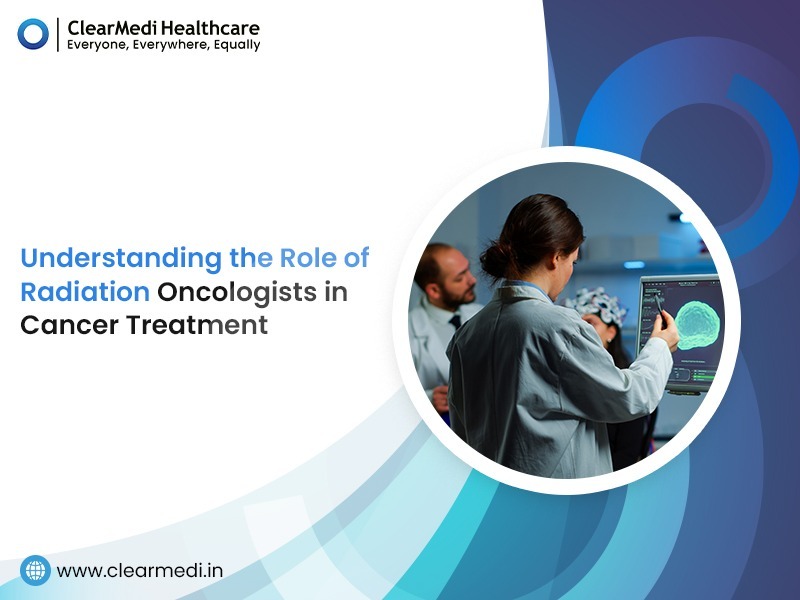The Basic Principles Of Arogyajivan Medical Tourism For Oncology
The Basic Principles Of Arogyajivan Medical Tourism For Oncology
Blog Article
Get This Report on Arogyajivan Medical Tourism For Oncology
Table of ContentsGetting My Arogyajivan Medical Tourism For Oncology To WorkThings about Arogyajivan Medical Tourism For OncologyArogyajivan Medical Tourism For Oncology Can Be Fun For AnyoneThe Arogyajivan Medical Tourism For Oncology DiariesAn Unbiased View of Arogyajivan Medical Tourism For OncologyNot known Details About Arogyajivan Medical Tourism For Oncology Facts About Arogyajivan Medical Tourism For Oncology Uncovered
If you have cancer cells, your health care company will recommend one or more methods to treat the illness. The most typical therapies are surgical procedure, chemotherapy, and radiation. Various other choices include targeted therapy, immunotherapy, laser, hormone therapy, and others. Here is an overview of the different therapies for cancer cells and how they work.Cancer cells expand and separate faster than typical cells in the body. Because radiation is most harmful to promptly expanding cells, radiation therapy problems cancer cells more than normal cells. It makes use of materials made by the body or in a lab to help the immune system work harder or in a more targeted way to deal with cancer cells.
Some have contaminants or radioactive materials affixed to them. Immunotherapy is given by IV. Hormonal agent therapy is used to deal with cancers cells that are sustained by hormones, such as breast, prostate, and ovarian cancers cells. It uses surgery, or medications to stop or block the body's all-natural hormones. This helps reduce the development of cancer cells.
Slim fibers at the end of the tube route the light at the cancer cells. Lasers are most typically used with various other types of cancer cells therapy such as radiation and chemotherapy.
Some Known Details About Arogyajivan Medical Tourism For Oncology

An oncologist is a cancer cells physician. These medical care carriers focus on oncology the branch of medicine that concentrates on diagnosing, staging and dealing with cancer cells. AdvertisementCleveland Center is a non-profit scholastic clinical facility. Advertising on our site helps support our mission. We do not back non-Cleveland Center services or products. A see to an oncologist offers you a possibility to talk with an expert who understands what you're undergoing.
They're ready to aid, and they'll walk with you every step of the method. Oncologists can: Run checks to detect cancerOffer a 2nd point of view on a previous diagnosisIdentify therapy optionsDiscuss each choice's benefits and side effectsOversee cancer treatmentManage post-treatment care Seeing an oncologist does not always imply you have cancer. An oncologist obtains included if you have signs that could be cancer.
3 Simple Techniques For Arogyajivan Medical Tourism For Oncology
The sooner you get a medical diagnosis, the Check Out Your URL better. Many cancers are more treatable in the beginning. Cancer is a complicated illness. People with cancer usually require numerous oncologists on their medical care group. This multidisciplinary method enables each professional to concentrate on a different area of your therapy with a common objective of collaborative, thoughtful treatment - ArogyaJivan Medical Tourism for Oncology.
Many clinical oncologists additionally focus on hematology (the medical diagnosis and therapy of blood conditions and blood cancers). These health care suppliers use radiation therapy to treat cancer. Radiation can diminish lumps prior to surgery or eliminate continuing to be cancer cells after surgery. You could have radiation as a stand-alone treatment or in combination with various other therapies.
An Unbiased View of Arogyajivan Medical Tourism For Oncology
Do I have cancer? For how long have I had it? What will my life resemble now? If these are the questions competing via your mind, you're not alone. Your oncologist is here to assist you navigate these emotions. During your first see, your oncologist will: Ask you to describe your signs look what i found in detailDo a checkupTestimonial your clinical documents, consisting of family background and any kind of past or existing health and wellness conditionsRun any kind of required examinations (like imaging examinations or laboratory job) to get more information regarding your symptomsDetermine whether you require a biopsyOnce your oncologist collects the details they need, they'll: Go over the results of your testsSend their findings to the healthcare supplier who referred youTell you whether you have cancer cells and if so, what kindTalk to you concerning various treatment optionsListen to your issues and anxietiesGive you resources that can use support and extra informationYour initially oncology visit may use up to three hours.
Oncology is the research study of cancer cells. Specialists educated in oncology offer care for individuals who are at threat for cancer, being dealt with for try these out cancer cells, and living with cancer after therapy.

Arogyajivan Medical Tourism For Oncology Fundamentals Explained
Some types of cancer occur most usually in these more youthful age teams. When these kinds of cancer cells periodically happen in adults, those adult individuals might choose to work with a pediatric oncologist.

Sometimes, a medical oncologist may be the initial specialist a patient sees. Occasionally when cancer cells is believed however not identified, an oncologist might additionally be included. Some people with blood conditions that might or might not be cancerous may be referred to a hematologist oncologist. Lots of people will proceed seeing their oncologist for follow-up visits to check for indicators of cancer coming back and to handle any kind of side effects from treatment.
All About Arogyajivan Medical Tourism For Oncology
If you have a cancer medical diagnosis and are evaluating your treatment options, consider taking part in a scientific trial. They might appear intimidating at first, professional tests can be extremely helpful no issue what type or stage of cancer cells you have. Benjamin Levy, M.D., clinical director of the Johns Hopkins Kimmel Cancer Cells Center at Sibley Memorial Hospital and a lung cancer cells scientist, discusses several of the factors to join a professional trial.
Report this page